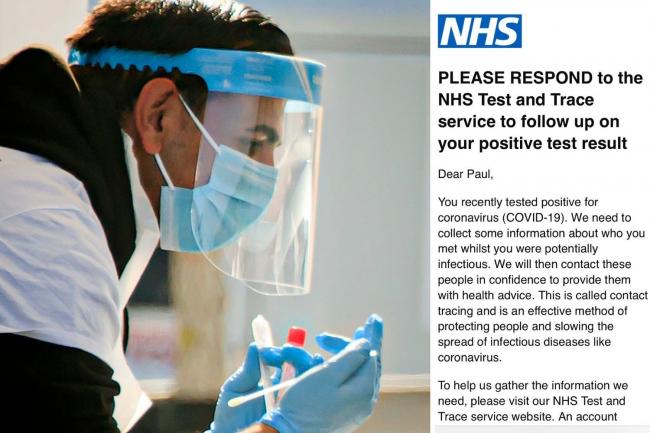By Press Association 2020-
The public must be alert to scam phone calls and text messages posing as part of the NHS test and trace service, experts have warned.
Last week, deputy chief medical officer for England Dr Jenny Harries said “it will be very obvious” when a member of the public receives a call from the new contact tracing programme.
The NHS test and trace programme is designed to limit the spread of transmission of coronavirus, and works by finding those who have come into contact with someone who has become infected and telling them to isolate via a phone call, email or text message.
Security experts and charities have warned that some people, particularly the vulnerable or elderly, could be susceptible to fake calls or messages from criminals looking to get access to personal information.
Since then, more than 600,000 emails have been forwarded to the service, which the NCSC said has resulted in the removal of more than 1,000 scams.
In an effort to clarify how official tracers will get in contact with people, the Department of Health has said NHS test and trace employees will never ask for financial details, PINs or banking passwords over the phone, and tracers will not be making any home visits.
messages sent from ‘NHS’, which will ask users to sign into the official NHS test and trace website and for their full name and date of birth to confirm their identity.
The guidance says tracers will never ask someone to dial a premium rate phone number to speak to them, for example, those starting 09 or 087, or ask for any bank details or to make any kind of payment or purchase.
It also says tracers will never ask for any social media identities or log-ins, passwords or PINs, or ask users to download software or access a website not belonging to the Government or the NHS.
Parthi Sankar, a cyber solutions consultant for US security firm Anomali, said this information was vital because “knowing precisely what to expect and what not to expect is key to avoid falling victim to a scam message”.
Ben Tuckwell, district manager UK and Ireland for cyber firm RSA Security, said: “Fraudsters are known to thrive in times of crisis.
“With millions of people around the country working from home, in many cases distracted by young children, the truth is that they are sitting ducks for clever and timely phishing attacks.
“Consumers can protect themselves by acting smart and pausing to consider each communication they receive.
This article was written with the knowledge and approval of Press Association




